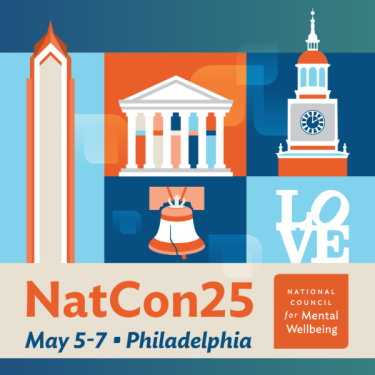Following news reports that the White House is considering creation of a Health Advanced Research Projects Agency (HARPA) that would study incidents of mass violence to develop more effective ways to prevent them, Chuck Ingoglia, president and CEO of the National Council for Mental Wellbeing, issued the following statement.
WASHINGTON, D.C. (September 11, 2019) – The National Council for Mental Wellbeing welcomes the potential White House support for making major financial investments into research to understand and respond to mass violence. However, we strongly urge Administration officials to be guided by existing research, which shows that people with serious mental illness are responsible for less than four percent of all violence and less than one-third of mass violence.
As a nation, we must not allow people with mental illness to become scapegoats for the urgent problem of mass violence, particularly perpetrated by individuals with guns. We must address this devastating problem with real solutions that tackle the complex underlying problems.
An expert panel of clinicians, researchers, law enforcement personnel and others convened by the National Council recently made a number of recommendations regarding the need for additional research on this topic, which should serve as a compelling guide to the Administration as it moves forward.
One of the most relevant and significant recommendations is to create a standardized, mandatory investigation and analysis of each mass violence incident, conducted by a multiagency team led by the Department of Justice. The results of each investigation would be entered into a national database, which would allow for in-depth analysis and hypothesis testing by researchers, law enforcement and others.
Additional research should be conducted on the potential root causes of mass violence, including social alienation, social determinants of health education, poverty, discrimination and limited employment opportunities, as well as the lack of quality and comprehensive mental health care.
We should not assume that mental illness will be found to be a substantial cause of mass violence. If HARPA looks only for people with mental illness it will miss the majority of mass violence perpetrators. Rather, we should analyze all the information available on each incident and let the new research guide us to understand what causes these horrible incidents and what interventions might prevent them.
We have made tremendous progress as a nation in reducing stigma and expanding access to care. Advancing misconceptions regarding mental illness and violence can and will result in millions of harmless, nonviolent individuals recovering from treatable mental health conditions being subjected to stigma, discrimination and even unwarranted legal restrictions and social control.
Now is the time to make smart, strategic investments guided by experts in the field to ensure that potential solutions are available to make a real and lasting difference. In this way, President Trump and his Administration can and should lead the nation toward a future that values the whole health of every American.
Mass Violence in America: Causes, Impacts and Solutions contains a complete list of recommendations made by the expert panel convened by the National Council Medical Director Institute.
Methodology
The National Council Medical Director Institute brought together a diverse group of practitioners, administrators, policymakers, researchers, educators, advocates, payers, patients and family members to ensure a discussion from a variety of viewpoints. Each provided literature and research from their area of expertise. A technical writer and co-editors recorded the proceedings and provided additional context from outside literature and sources. The recommendations contained in the report are concrete, specific and actionable. The executive summary can be accessed at www.TheNationalCouncil.org/about/national-mental-health-association/medical-director-institute/.
About the Medical Director Institute
The Medical Director Institute advises the National Council for Mental Wellbeing board, staff and membership on issues and topics heavily impacted by clinical practice and provide longer-term guidance through a series of technical papers. The Medical Director Institute is primarily composed of medical directors from National Council member organizations. The full roster can be found at www.TheNationalCouncil.org/about/national-mental-health-association/medical-director-institute.
About The National Council
Founded in 1969, the National Council for Mental Wellbeing is a membership organization that drives policy and social change on behalf of over 3,200 mental health and substance use treatment organizations and the more than 15 million children, adults and families they serve. We advocate for policies to ensure access to high-quality services. We build the capacity of mental health and substance use treatment organizations. And we promote greater understanding of mental wellbeing as a core component of comprehensive health and health care. Through our Mental Health First Aid (MHFA) program, we have trained more than 4 million people in the U.S. to identify, understand and respond to signs and symptoms of mental health and substance use challenges.



